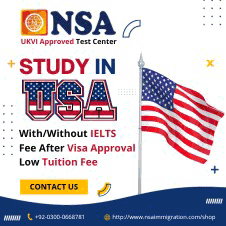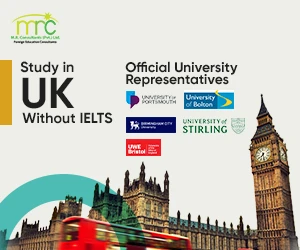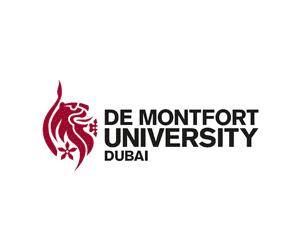
As an international student in Turkey you will have the opportunity to experience both modernity and tradition in one of the safest and most stable countries in the region. Some Turkish Universities has English as the teaching language while others will offer the opportunity to learn English. Above all, the high quality of education will make you more than ready for a future anywhere in the world.
Positioned at the crossroads of east and west, the Turkish landscape encompasses a vast variety of geographical zones, it has the combined characteristics of three continents of the world: Europe, Africa and Asia. Due to its location, surrounded by seas on three sides, Turkey has always been the centre of the great trade, silk and spice routes. Today, even in the most inaccessible or isolated corners, one can easily feel and see the traces of different cultures.
 Turkish Universities will among other things provide you with:
Turkish Universities will among other things provide you with:
- High standards of education
- Internationally recognized degrees
- Modern campuses with outstanding facilities
- Cultural diversity
- Safe and affordable education
- A warm and friendly environment
The Turkish Educational System
The Turkish National Educational System is composed of two main sections; formal and non-formal education. Formal Education means the school system and thus includes the higher education which will be the focus of this guide. Non- formal education includes all the activities organized outside or alongside the school.
The formal education includes:
PRE-SCHOOL EDUCATION: Optional education held in kindergartens and such, up to 6 years of age.
PRIMARY EDUCATION: Compulsory for eight years, 6-14 years of age.
SECONDARY EDUCATION: High School or vocational High School, 15-17/18 years of age.
HIGHER EDUCATION: This category includes all educational institutions which will provide post- secondary education.
Higher Education in Turkey
In Turkey, the higher education institutes will provide at least two years of higher education and educate students for associate's, bachelor's, master's or doctorate degree levels. Institutions of higher education consist of universities, faculties, institutes, schools of higher education, conservatories, vocational schools of higher education and application-research centers.
Turkish universities provide high level specialized education in various fields for students who have completed secondary education. Escalation of higher education to live up to the fully globalizing world, in terms of both quality and quantity, has been adopted as the primary goal. The plans and programs made have always reflected this perception. Universities comprising several units are established by the state and by law as public corporations having autonomy in teaching and research. Furthermore, institutions of higher education, under the supervision and control of the state, can also be established by private foundations in accordance with procedures and principles set forth in the law provided that they are non-profit in nature.
As in many other parts of the world University is the principal higher education institution in Turkey. It possesses academic autonomy and a public legal personality. It is responsible for carrying out high level educational activities, scientific research and publications. Each university consists of faculties and four-year schools, offering bachelor's level programs, the latter with a vocational emphasis, and two-year vocational schools offering pre-bachelor's (associate's) level programs of a strictly vocational nature.
Graduate-level programs consist of master's and doctoral programs, coordinated by institutes for graduate studies. Master's programs are specified as "with thesis" or "without thesis" programs, both at a minimum of two years. "With thesis" master's programs consist of a specified course completion followed by a submission of a thesis whereas "without thesis" programs consist of completion of graduate courses and a term project. Access to doctoral programs requires a master's degree. Doctoral programs have a duration at least four years which consists of completion of courses, passing doctoral qualifying examination, and preparing and defending a doctoral thesis. Medical specialty training programs equivalents to doctoral level programs are, however, carried out within the faculties of medicine and the training hospitals owned by the Ministry of Health and the State Social Insurance Organization. Universities are free to determine the number of students to be admitted to graduate-level programs, as well as admission requirements, and the curricula and degree requirements of such programs, in line with the general rules and regulations adopted by the Interuniversity Council.
Tuition Fees
Tuition fees of Turkish teaching institutions are determined at the beginning of every year. These where the annual amounts of 2003-04: (for more exact figures it is best to contact the university where you plan to apply)
In universities where classes are taught in Turkish the fees are generally about half the price.
(Students from Turkish Republics and Turkish-originated countries (Azerbaijan, Bashkortostan, Bosnia and Herzegovina, Dagestan, Karachay-Cherkessia, Kazakhstan, Kyrgyzstan, Macedonia, Mongolia, Moldova, Nahcevan, Uzbekistan, Tadzhikistan, Tatarstan, Turkmenistan, and Ukraine) all pay their tuition fees as Turkish nationals.)
Accommodation and Living Expenses
Most campus universities offer a variety of accommodation facilities or other options. Apart from university dormitories, state owned dormitories serve for all students. Students are encouraged to contact the university at hand to find out more about their specific options. Large cities sometimes also offer rented accommodation, often shared with other international or Turkish students.
Most of the dormitories have kitchen supplies for abilities to cook own meals, they also have small cafeterias which serve until midnight. Dormitories are separated by gender and offer both private and shared rooms. Living in a dormitory is a great opportunity to be involved in on- and off-campus activities as well as meeting lots of other students, a great way to make friends for an international student. Average room prices vary between $ 30 and $ 300 per month depending on facilities.
OFF-CAMPUS RENTING: In the major cities off-campus apartments prices quite high, but the prices also vary much with district, size and quality. The solution for many students is to share apartment with a friend or fellow student. Average cost of an apartment off campus ranges between $200 and $500/ month.
Living expenses for international students generally go upwards from 300 to 400 US dollars per month depending on the living standards you choose. Books and administrative fees are approximately 100 to 150 US dollars per semester.
Turkish Cuisine
As in many south European countries eating is a significant part of social life in Turkey. In addition to traditional Turkish cuisine in all its regional varieties, different types of food are widely available such as fast-food and vegetarian. Turkish universities generally have reasonably priced alternatives of good quality food services for students. Cafes and restaurants around the university are another option for eating out or you may prefer doing your own cooking.
Transportation
Public transportation is very convenient and provided by buses, minibuses (dolmus), and subways (in major cities). Students have the right to a special discount for transportation both for intra-city and inter-city transportation.
Health
All universities in Turkey hold some sort of medical centers. However, international students are strongly advised to come to Turkey with a valid health insurance policy. International students are responsible for costs of hospitalization or for any medical service or treatment not available at university health center. All hospitals have an emergency room that is open 24 hours a day, physicians and pharmacies are on call nights and weekends.
Libraries and Computing Facilities
All Turkish Universities have libraries on their campuses, all books though are in Turkish as well as all other appliances available. There are a few university libraries such as METU (Middle East Technical University), Hacettepe University, Bilkent University in Ankara; and Bosphorus University, ITU (Istanbul Technical University) and Sabanci University in Istanbul whose books and materials are in English. Whichever university you go to in Turkey, you will surely find computer labs with internet connection for your service.
Social Life
The fact that studying in Turkey is a great opportunity for a high quality education we have established already, but there is so much more than that. Turkey's cities have many historical and cultural sites to visit, theaters and cinemas, exhibitions and festivals are also available for the one who feels like exploring the Turkish culture to the fullest.
As a study abroad student you may consider joining some of the variety of clubs or student associations all of that can enrich your life in Turkey. In this beautiful country you will see all the characteristics of four climates, so there are various sports alternatives to take part in ranging from swimming, rafting, boating, to skiing. Football, basketball, volleyball and jogging are other parts of the vast array of sports and recreational activities you can enjoy.
Regulations for International Students
STUDENT VISA: International students who wish to study in Turkey must acquire a visa from the Turkish Consulate in their home country before entering Turkey as the Student Visa will be required for registration to a college or university.
RESIDENCE: Within a month of arrival in Turkey all international students must register with and obtain a Residence Permit (Ikamet Belgesi). This permit is required from the Department of Foreign Section at the Directorate of Security in each province.
WORK: International students, unfortunately, have no legal right to work either in public or private office. However, there might be very few and little paid student assistant jobs at some universities such as METU and Bilkent.
INSURANCE: International students are responsible for any cost of hospitalization or for any medical service or treatment not available at university campuses. Students are urged to purchase appropriate insurance for emergency and hospitalization valid in Turkey.
For more details visit www.fespak.com



.gif)


 1026
1026
 0
0
1.jpg)




























